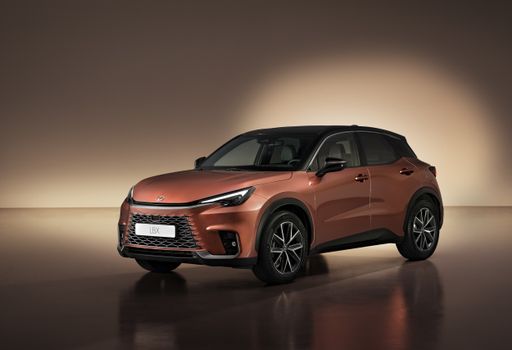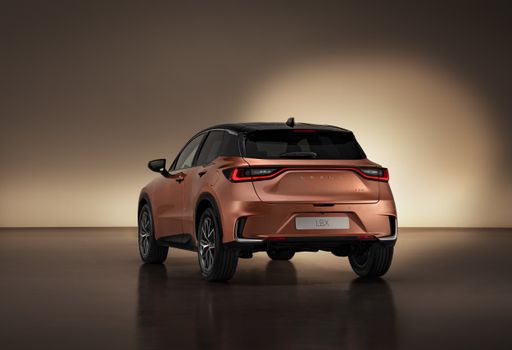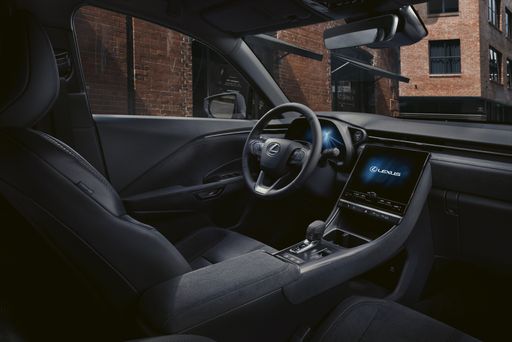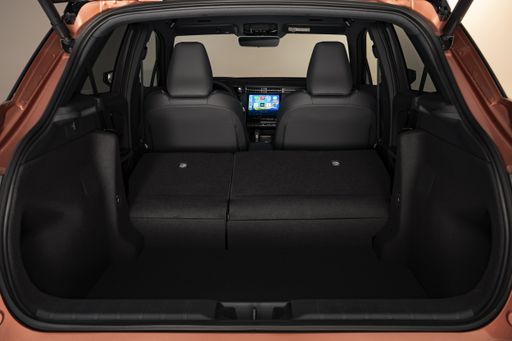Lexus LBX vs VW Transporter Transporter – Differences & prices compared
Compare performance, boot space, consumption and price in one view.
Find out now: which car is the better choice for you – Lexus LBX or VW Transporter Transporter?
The Lexus LBX (SUV) comes with a Full Hybrid engine and Automatic transmission. In comparison, the VW Transporter Transporter (Cargo Van) features a Diesel, Plugin Hybrid or Electric engine with Manuel or Automatic transmission.
When it comes to boot capacity, the Lexus LBX offers 332 L, while the VW Transporter Transporter provides – depending on how much space you need. If you’re looking for more power, decide whether the 136 HP of the Lexus LBX or the 286 HP of the VW Transporter Transporter suits your needs better.
In terms of consumption, the values are 4.50 L per 100 km for the Lexus LBX, and 21.90 kWh7.10 L for the VW Transporter Transporter.
Price-wise, the Lexus LBX starts at 28300 £, while the VW Transporter Transporter is available from 37500 £. Compare all the details and find out which model fits your lifestyle best!
Lexus LBX
The Lexus LBX represents a new era of compact luxury crossovers, blending a sleek design with exceptional craftsmanship. This model offers an impressive balance of performance and comfort, making it an appealing option for urban driving and longer journeys alike. Inside, the cabin features high-quality materials and innovative technology, ensuring a driving experience that is both sophisticated and connected.
details @ newsroom.lexus.eu
@ newsroom.lexus.eu
 @ newsroom.lexus.eu
@ newsroom.lexus.eu
 @ newsroom.lexus.eu
@ newsroom.lexus.eu
 @ newsroom.lexus.eu
@ newsroom.lexus.eu
VW Transporter Transporter
The VW Transporter, a versatile favourite among commercial vehicles, combines practicality with modern design. Its spacious interior offers ample room for both passengers and cargo, making it a reliable choice for businesses and families alike. The vehicle's strong build and advanced technology ensure a smooth and efficient driving experience in various conditions.
details

|
|
|
|
|
Costs and Consumption |
|
|---|---|
|
Price
28300 - 40000 £
|
Price
37500 - 60800 £
|
|
Consumption L/100km
4.5 - 4.8 L
|
Consumption L/100km
7.1 - 8.4 L
|
|
Consumption kWh/100km
-
|
Consumption kWh/100km
21.9 - 24.4 kWh
|
|
Electric Range
-
|
Electric Range
56 - 331 km
|
|
Battery Capacity
-
|
Battery Capacity
11.8 - 63.8 kWh
|
|
co2
102 - 109 g/km
|
co2
0 - 220 g/km
|
|
Fuel tank capacity
36 L
|
Fuel tank capacity
55 L
|
Dimensions and Body |
|
|---|---|
|
Body Type
SUV
|
Body Type
Cargo Van
|
|
Seats
5
|
Seats
2 - 5
|
|
Doors
5
|
Doors
4 - 5
|
|
Curb weight
1280 - 1365 kg
|
Curb weight
1872 - 2462 kg
|
|
Trunk capacity
255 - 332 L
|
Trunk capacity
-
|
|
Length
4190 mm
|
Length
5050 - 5450 mm
|
|
Width
1825 mm
|
Width
2032 mm
|
|
Height
1560 mm
|
Height
1966 - 1985 mm
|
|
Payload
455 - 475 kg
|
Payload
755 - 1259 kg
|
Engine and Performance |
|
|---|---|
|
Engine Type
Full Hybrid
|
Engine Type
Diesel, Plugin Hybrid, Electric
|
|
Transmission
Automatic
|
Transmission
Manuel, Automatic
|
|
Transmission Detail
-
|
Transmission Detail
Manual Gearbox, Automatic Gearbox
|
|
Drive Type
Front-Wheel Drive, All-Wheel Drive
|
Drive Type
Front-Wheel Drive, All-Wheel Drive, Rear-Wheel Drive
|
|
Power HP
136 HP
|
Power HP
110 - 286 HP
|
|
Acceleration 0-100km/h
9.2 - 9.6 s
|
Acceleration 0-100km/h
7.4 - 16.9 s
|
|
Max Speed
170 km/h
|
Max Speed
112 - 150 km/h
|
|
Torque
185 Nm
|
Torque
310 - 415 Nm
|
|
Number of Cylinders
3
|
Number of Cylinders
4
|
|
Power kW
100 kW
|
Power kW
81 - 210 kW
|
|
Engine capacity
1490 cm3
|
Engine capacity
1996 - 2488 cm3
|
General |
|
|---|---|
|
Model Year
2024
|
Model Year
2025
|
|
CO2 Efficiency Class
C
|
CO2 Efficiency Class
G, A
|
|
Brand
Lexus
|
Brand
VW
|
Lexus LBX
Introducing the Lexus LBX: A New Age of Compact SUVs
The highly anticipated Lexus LBX has revolutionised the compact SUV market, delivering a perfect blend of luxury, efficiency, and performance. With a strong emphasis on hybrid technology, this new model sets a high standard for the environmentally conscious motorist while not compromising on style or innovation.
Under the Bonnet: Technical Mastery
The Lexus LBX is powered by an advanced full-hybrid drivetrain, with a capable engine that deftly combines efficiency and power. Its 1.5-litre, 3-cylinder engine is paired with a CVT automatic gearbox, producing a commendable 136 PS and 100 kW of power. This setup ensures smooth transitions and a seamless driving experience.
The choice between front-wheel and all-wheel drive ensures that drivers can tailor the LBX to their specific needs. The front-wheel drive variant boasts an impressive consumption rate of 4.5 L/100km, while the all-wheel drive models achieve 4.8 L/100km. With CO2 emissions ranging from 102 to 109 g/km, the LBX stands out as a sustainable choice in its class.
Performance and Efficiency
The Lexus LBX doesn’t just excel in fuel efficiency. Its performance statistics are noteworthy, with an acceleration of 0-100 km/h in just 9.2 to 9.6 seconds, and a top speed of 170 km/h. The hybrid system provides a combined torque of 185 Nm, delivering an energetic drive without compromising on environmental considerations.
Despite its compact design, the Lexus LBX offers a substantial boot space of 255 to 332 litres, making it ideal for everyday use and weekend escapades. The SUV's dimensions—measuring 4190 mm in length, 1825 mm in width, and 1560 mm in height—ensure it is suitably compact for urban driving while providing ample interior space.
Innovation in Design
Lexus pushes the boundaries of SUV design with the LBX by offering a modern and elegant aesthetic alongside its technical features. The model is available in several trim levels, including e-CVT, Elegant e-CVT, and the more dynamic Emotion E-FOUR e-CVT, each designed to cater to different tastes and preferences.
Interior features focus on comfort and connectivity, providing a plush environment with advanced infotainment options that seamlessly integrate with daily life. The LBX seats four comfortably, making use of high-quality materials that reflect the premium nature of the brand.
Price and Value Offering
The Lexus LBX comes with an accessible price range of €32,990 to €46,190, offering a luxurious entry into the world of hybrid SUVs. Considering its monthly operational costs ranging from €920 to €1,088, the LBX offers economical running alongside its ecological advantages, making it a smart choice for the discerning driver.
In conclusion, the Lexus LBX captures the essence of what a modern compact SUV should offer: performance, efficiency, and luxury all wrapped in a package that respects the environment. It is a noteworthy addition to the Lexus family, sure to capture the hearts of drivers everywhere.
VW Transporter Transporter
Revolutionizing Utility: The VW Transporter T7
The latest iteration of the VW Transporter, known widely as the Transporter T7, marks a significant evolution in utility vehicle design and functionality. As a mainstay in the VW lineup, the Transporter T7 comes with a plethora of options, ensuring that it meets a variety of professional and personal needs.
Diverse Models to Fit Every Need
For 2025, the VW Transporter T7 is available in multiple configurations, ranging from efficient diesel engines to innovative hybrid systems. The conventional models are powered by a 2.0 TDI diesel engine, offering three power outputs: 110 HP, 150 HP, and a vigorous 204 HP. For those seeking a more sustainable option, the 2.5 eHybrid model provides a combined power output of 233 HP with an electric range of 56 km, thanks to its 11.8 kWh battery.
Innovative Technical Aspects
Underpinning the technical innovations of the Transporter T7 is VW's dedication to cutting-edge engineering. The diesel engines provide torque ranging from 310 Nm up to 390 Nm, ensuring robust performance across the lineup. Moreover, the T7 offers configurations with either manual or automatic gearboxes, catering to different driving preferences.
The availability of front-wheel drive and the 4MOTION all-wheel-drive system across the range enhances versatility, allowing the Transporter T7 to tackle various terrains with ease. With body lengths extending to 5450 mm and a payload capacity of up to 1259 kg, the Transporter T7 stands as a paragon of practicality for transporting goods or accommodating passengers.
Comfort and Design Revolution
Beyond performance, the VW Transporter T7 has been designed with driver comfort and ergonomic efficiency in mind. The cabins offer ample seating configurations, supporting both two-seat and five-seat layouts. The inclusion of modern conveniences elevates the driving experience, making long hauls more manageable and stress-free.
The exterior dimensions, with a width of 2032 mm and a height up to 1969 mm, marry the classic robust design with a contemporary touch, making the Transporter T7 a visual centerpiece in any fleet.
Economical and Environmental Impact
Economic efficiency is another critical aspect of the VW Transporter T7's design philosophy. With diesel fuel tank capacities between 55 and 63 liters, and an emphasis on improving mileage with each engine variant, operational costs are kept at a minimum. Additionally, the eHybrid model not only offers environmental benefits but also presents substantial savings on fuel through its electric range capability.
Conclusion: The Transporter T7 Legacy Continues
The VW Transporter T7 furthers the legacy of its predecessors by combining practicality, innovation, and eco-friendliness. Whether utilized for business in its cargo van capacity or adapted for personal use with seating comforts, the Transporter T7 is set to remain a critical player in the automotive sector, pushing the boundaries of what a multi-purpose van can achieve.
The prices and data displayed are estimates based on German list prices and may vary by country. This information is not legally binding.
